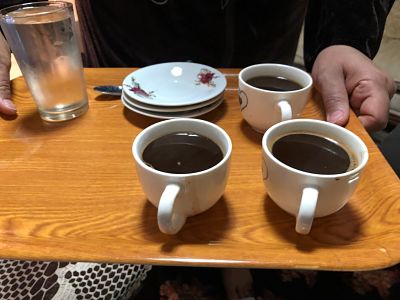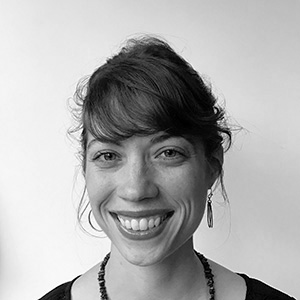Categories
Mo was genuinely appreciative and genuinely frustrated, at the same time. He was living in the space between, holding two equally true but seemingly contradictory feelings. Over the course of a single conversation, Mo swung between hope and despair, gratitude and humiliation, self-belief and doubt. Emotional ambivalence was a frequent, even if confusing, state.
Mo is not alone. Eros, who moved to Canada from the Philippines to reunite with his mother, feels both lost and found. Maria and Sal, who came to Canada from Mexico to reunite with their kids, experience both peace and disappointment. Nandeep, who immigrated to Canada from Punjab state, holds both acceptance and sadness.
Across 58 ethnographies of newcomers — of Filipino families, Arabic speaking men, older and disabled refugees from China, India, Iraq and Syria — in two Canadian cities — Toronto, Ontario and Surrey, British Columbia — it was the emotional geography that most stood out.
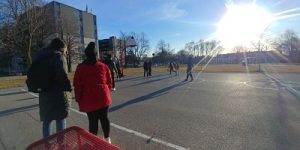
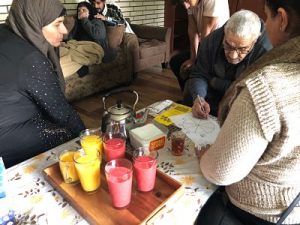
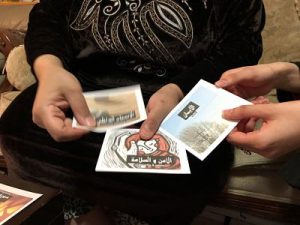
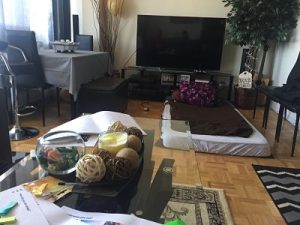
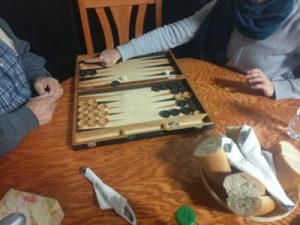

So often when we talk of migration, we go big picture, describing international currents, economic drivers, and security situations. So often when talk of resettlement, we go practical, focusing on housing, jobs, and English classes. And yet beneath the politics and the pragmatics, emotions percolate. Migration, as Professors Paulo Boccagni and Loretta Baldassar remind us, entails the renegotiation of self and others in new and old places. That re-negotiation process is laden with feelings. And those feelings are experienced internally, within bodies, and externally, within social contexts, through our words, expressions, customs, and interactions. Moving to a new country means constantly moving emotions.

And yet, emotions are too often marginalized throughout the migration process, only to later be cordoned off as mental health issues, requiring specialist mental health supports.
What if we recognized and embraced ambivalent emotions throughout the resettlement process — from pre-arrival, to month 13 (when initial supports come to an end) to year three (when Canadian citizenship becomes a possibility)? What if we understood that anticipation, relief, gratitude, and hope is often mixed with disappointment, worry, sadness, and humiliation? How might we create new kinds of spaces and supports to move through ambivalence — and not silo emotions to clinical spaces or filter them through Western conceptions of mental health?
This is the opportunity space Grounded Space will explore over the next three months. We are seeking to find ways to counter the mutedness and distance that surfaced during our initial ethnographic work: to bring more honesty, more holism, and more fullness to the experience of Filipino young people reuniting with their moms, older and disabled refugees, and Arabic speaking men. Too many of the newcomers we met are living a grey & beige life, removed from the full colour and emotional palettes of their prior and imagined lives.
There will be no one solution — rather, we will co-design and test a suite of big and small interventions that …
- Shape expectations along the newcomer journey
- Bring families & friends together, across geographic & language barriers, for new kinds of conversations
- Create new spaces & customs for renegotiating feelings and roles
- And more …
Along the way, we will be mindful that emotions aren’t just individual constructions. They are shaped by and expressed in social settings — and so our interventions will need to operate in the spaces between the private and the public, the individual and their family, the family and their environment. What exactly will this look like? We don’t know. That’s what the next three months will show us. So, how did we get here?
Where are we?
We’re in the fourth month of Grounded Space 2.0. Grounded Space is a collective of social services committed to developing the next generation of services and supports. We curate teams of designers, social scientists, community developers and frontline workers to make and test alternative welfare models, rooted in the lived realities of people on-the-ground, left out or not well served by existing systems. In 2019, Grounded Space is supporting three teams to move from original research insights to prototyped solutions.
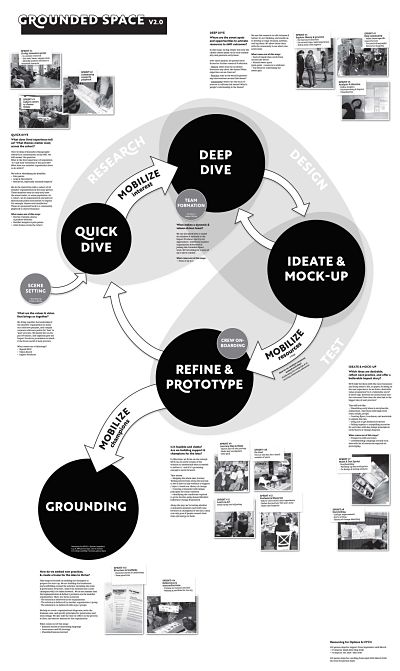
Where have we been?
Since October, thanks to funding from Immigration, Refugees, and Citizenship Canada (IRCC) we’ve been partnering with North York Community House in Toronto and Options Community Services in Surrey to capture the experiences of newcomers and re-imagine parts of their journey. We’ve created a new role — the Impact Producer — to hold the ground for experimentation, and enable us to move from best to next practice. It’s an inherently challenging role. One that is all about navigating the space between what exists and what could be, between the rules and protocols of the current system and the fluidity and uncertainty of an alternative system.
Moving towards an alternative system requires making visible assumptions, values, and logics. It demands new forms of intelligence. And so we’ve been spending time at grocery stores, bakeries, parks, places of worship, and family homes to begin to get to know newcomers from the Philippines, Iraq, Syria, Punjab State, and China. All that hanging out has yielded 58 ethnographies, 30+ pain points, 40+ insights, and 60+ ideas. And it is only the start.
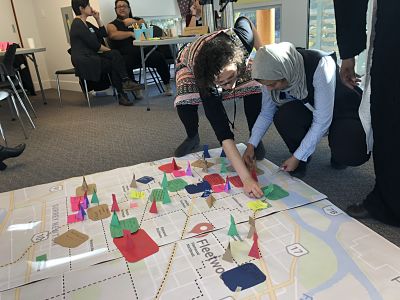
Where are we going?
Our initial ethnographic research phase, called the Quick Dive, has given way to a more focused phase, called the Deep Dive. We’ve identified a common theme — emotional ambivalence — and are going back to individuals and families to further unpack this experience. We’ll also visit existing services to see how emotions are conceptualized and attended to. At the same time, we’ll go lateral, looking for examples of how emotional ambivalence is addressed by other sectors and countries. How do doulas help moms navigate the mixed emotions of childbirth? How do oncologists help people through the disappointment and fear of a diagnosis? How do indigenous cultures use ceremony to nurture emotions and collective identities? And we’ll dig deeper, into the academic literature, to extract relevant ideas and empirical studies from philosophy, human geography, sociology, psychology, feminist studies, and neurobiology.
Across these research streams, we’re looking for practical insights, not just interesting tidbits. We need starting points for designing new kinds of interventions. By April, we’ll be back in synthesis mode, taking all of this rich information into ideation. That’s where we will make storyboards, animations, and other visualizations to bring to life proposed interventions all so we can test them, at a small scale, in every day contexts. But, we won’t do this alone. We’ll be bringing together newcomers and community members to see where the energy and momentum lies. At least that’s the hope. Help us get there.
Want to be involved? Get in touch with the Impact Producers:
- Surrey: [email protected]
- Toronto: [email protected]
